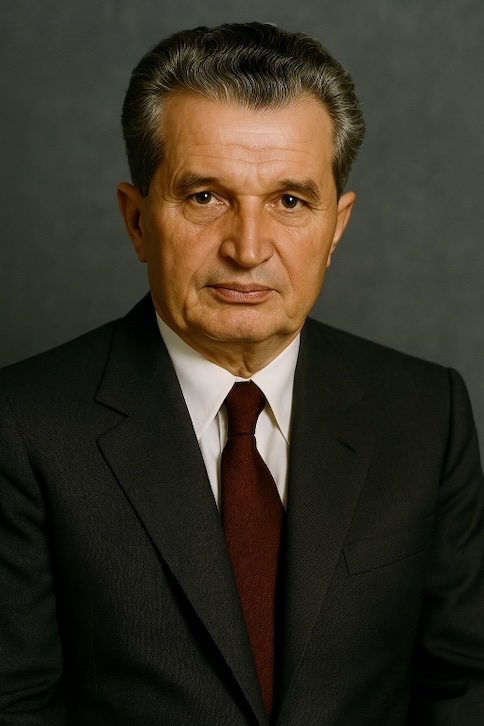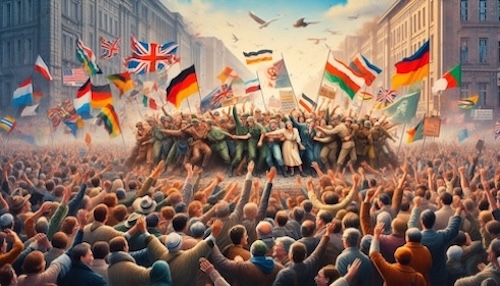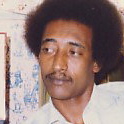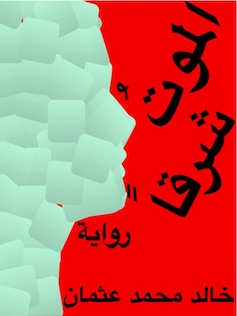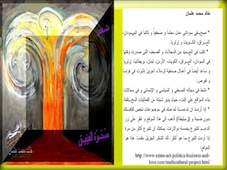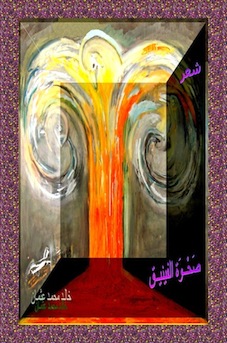Why Do Nations Fragment When Unity is Their Greatest Strength?
Through "Why Do Nations Fragment When Unity is Their Greatest Strength", you'll gain insights into the forces behind national fragmentation and understand the broader dynamics shaping global unity. But first, let’s reflect on why I am exploring this question and its answers.
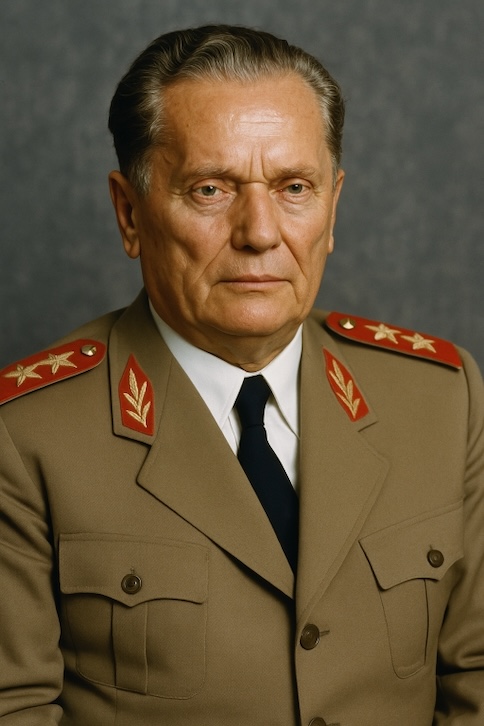 Why Do Nations Fragment When Unity is Their Greatest Strength?: Unity leaders history will never get again, until people rethink of unity: Yugoslavian leader Josip Broz Tito. What a cost?
Why Do Nations Fragment When Unity is Their Greatest Strength?: Unity leaders history will never get again, until people rethink of unity: Yugoslavian leader Josip Broz Tito. What a cost?The dissolution of the Union of Soviet Socialist Republics (USSR) and the European Socialist Bloc followed the 1989 attempts to dismantle one of the world's strongest international powers... an entity that, despite its ideological conflicts, upheld a crucial political balance between two dominant states.
It was an event that marked the end of the Cold War Era... served as a pivotal moment in history. This unbelievable historical mistake prompted me to question why nations that seemingly benefit from unity choose to fragment. This curiosity led me to create a dedicated page to delve deeper into the issue.
Additionally, my study of historical eras often uncovers new perspectives, prompting me to expand on ideas introduced briefly elsewhere in the HOA Political Scene Network long years ago. As my research deepened, I developed a series of interconnected pages, including "Why Do Nations Fragment When Unity is Their Greatest Strength", to address the complexities of national unity and fragmentation.
The essence of this exploration is clear: despite our differences, the world thrives when we engage in open discussions, seek common ground, and prioritize positive development, learning, and thinking. We have only one life to live on this planet... so let’s strive to do better.
Here are the interconnected pages, which I have written in the aftermath of Wars Tradees that has started with the America president Donald Trump when he launched new economical policies with tariffs... an enticing thing that has motivated me to study the economical connections of some other eras in history to shed lights on this new era:
- Why Expanding Horn Africa to Include Other States and Global Impacts?
- A New Era of Chaos and Distrust is Shaping!
- Pre-Cold War Era of Colonialism & Imperial Rivalries!
- Pre-Cold War American Expansionism!
- The Cold War Era: A Battle of Ideologies and Influence!
- Why Do Nations Fragment When Unity is Their Greatest Strength?
- European Eastern Socialist Bloc Fragmentation!
- The Sudanese Muslim Brothers and the U.S. have Created Int Terrorism!
- Eritrea Was Too Late to Independence Due to Colonial Conspiracies!
- Namibian Road to Independence From Liberation to Sovereignty!
- The Post-Cold War Era: A Shifting Global Landscape!
- How Economics, Ideology, and Geopolitics Fragment Nations and Create New Ones?
- New World Order: Stability or Chaos?
- Why Am I Saying A New Era of Disorder and Doubts is Shaping?
Why Did Nations at the European Socialist Bloc Fragment?
Examining the Fall of the Socialist Bloc
Throughout history, nations have emerged, flourished, and, at times, disintegrated under various pressures. One of the most striking examples of large-scale fragmentation occurred during the late 20th century, with the dissolution of the socialist bloc... an alliance of communist states predominantly influenced by the Soviet Union. But why did these nations fragment?
The answer lies in a combination of political, economic, social, and ideological factors.
The Socialist Bloc: A Fragile Union
The socialist bloc, led by the Soviet Union, was established as a counterbalance to Western capitalist powers after World War II. It consisted of Eastern European nations, bound together by communist ideology and the influence of Moscow. Despite outward solidarity, cracks began to form within the system, eventually leading to fragmentation.
1. Economic Stagnation and Discontent
A major catalyst for fragmentation was the inefficiency of centrally planned economies. While socialism aimed to provide equality and stability, in reality, it led to economic stagnation, shortages of consumer goods, and declining living standards. Citizens in states like East Germany, Poland, and Romania grew increasingly frustrated with their governments, fueling dissatisfaction and demands for reform.
2. Nationalism and Independence Movements
Many socialist bloc nations had histories of nationalism and cultural independence predating their alignment with the Soviet Union. Over time, resentment toward Soviet control mounted, particularly in regions with strong historical identities, such as the Baltic states and Eastern European countries. The desire to break free from Moscow's grip intensified, fostering independence movements that eventually led to sovereignty.
3. The Weakening of Soviet Influence
By the 1980s, the Soviet Union faced its own internal struggles, including economic decline, political instability, and public unrest. When Mikhail Gorbachev introduced reforms like openness (glasnost) and economic restructuring (perestroika), Soviet control over its satellite states began to weaken. The withdrawal of military support meant that Eastern European nations could pursue their own paths, accelerating their fragmentation.
4. The Fall of the Berlin Wall (1989) and the Collapse of the USSR (1991)
One of the defining moments of fragmentation came with the fall of the Berlin Wall in 1989, symbolizing the end of Communist dominance in Eastern Europe. Soon after, socialist governments collapsed across the region, and newly independent nations emerged. By 1991, the Soviet Union itself had dissolved, marking the final chapter in the socialist bloc's fragmentation.
A Shift Toward New Political Orders
The fragmentation of the socialist bloc was not a singular event but rather a series of interconnected crises. Economic inefficiency, nationalism, declining Soviet influence, and political reforms collectively dismantled the communist system. Today, the former socialist states exist as independent nations with diverse political and economic structures, demonstrating how historical fragmentation shapes the modern world.
Elaboration on the Causes of Economical Stagnation!
Economic stagnation in the socialist bloc was driven by several structural and systemic weaknesses. Here’s a deeper look at the primary causes:
1. Inefficiencies of Central Planning
Socialist economies were heavily centralized, with governments controlling production, pricing, and distribution. While the intention was to ensure equality and prevent market fluctuations, this system led to inefficiencies:
- Bureaucratic delays slowed economic decision-making.
- Shortages arose because planning often failed to meet actual demand.
- Overproduction of unnecessary goods wasted resources, while essential goods remained scarce.
Without the flexibility and competition seen in market economies, stagnation became unavoidable.
2. Lack of Incentives for Productivity and Innovation
Since socialist economies did not prioritize profit-driven competition, workers and enterprises had little motivation to improve efficiency, develop new technologies, or enhance productivity.
- Wages were often fixed, reducing motivation for individual performance.
- State-owned enterprises lacked incentives to innovate since profits were redistributed rather than reinvested.
- Scientific and technological advancements lagged due to restrictions on private enterprise and rigid bureaucratic oversight.
3. Heavy Military Spending
The Cold War required immense military expenditures, diverting resources away from economic development. The Soviet Union, in particular, devoted vast amounts of GDP to defense, while consumer industries suffered.
- Investments in arms production outpaced those in civilian manufacturing.
- Public services and infrastructure deteriorated due to underfunding.
- High military spending intensified economic pressure, worsening stagnation.
4. Trade and Resource Constraints
The socialist bloc’s trading network was largely confined to fellow communist states, limiting economic diversification.
- Exports were mostly restricted to other socialist countries, reducing competitiveness.
- Technological imports from Western nations were difficult due to political tensions.
- Many nations faced resource shortages, leading to poor industrial output and reliance on Soviet aid.
5. Corruption and Mismanagement
Economic corruption was rampant, with officials manipulating quotas and embezzling resources.
- Ineffective economic policies were often implemented for political gain rather than economic logic.
- Black markets thrived as citizens sought alternatives to state-controlled goods.
- Mismanagement of industries led to failing factories, worker dissatisfaction, and declining productivity.
6. Public Dissatisfaction and Systemic Collapse
As living standards declined due to economic stagnation, public frustration grew. Long lines for basic necessities, limited consumer choices, and poor infrastructure eroded confidence in socialism.
- By the 1980s, protests and demands for reform became widespread.
- Economic hardships contributed to political instability, accelerating fragmentation.
- The inability to adapt to global economic changes sealed the bloc’s fate.
These interconnected issues created an economic crisis that socialist governments could not reverse, ultimately leading to collapse.
The "Cracks" within the Socialist Bloc!
The "cracks" within the socialist bloc were multi-layered and extended beyond the broad categories I initially outlined. These fractures emerged over decades and revealed deep-rooted weaknesses in the system. Here’s a more detailed breakdown of some of the most significant ones:
1. Ideological Disillusionment
At the heart of socialism was the vision of equality, prosperity, and collective success. However, as time passed, many citizens and intellectuals within the bloc realized that the promise of communism was far from its reality. Corruption among party elites, suppression of personal freedoms, and economic disparities within supposedly equal societies led to growing disillusionment. People began questioning whether socialism was truly the system that could deliver on its promises.
2. Widespread Political Corruption and Authoritarianism
The socialist governments, particularly in the Soviet Union and Eastern Europe, maintained control through oppressive political structures. Dissent was not tolerated, and opposition leaders, activists, and even everyday citizens faced imprisonment or persecution for criticizing the state. Over time, frustration with authoritarian rule grew, and underground movements demanding democratic reforms gained momentum.
3. Intra-Bloc Divisions and Rivalries
Although the bloc was theoretically united under socialism, there were significant ideological and political differences among its member states. For instance:
- Yugoslavia, under Josip Broz Tito, pursued a more independent socialist path, often clashing with Soviet policies.
- Romania, under Nicolae Ceaușescu, resisted Soviet influence and attempted to forge its own nationalist version of socialism.
- Czechoslovakia’s Prague Spring in 1968 demonstrated internal conflicts over reform and Soviet control.
These internal ideological divisions weakened cohesion and made collective decision-making increasingly difficult.
4. Information Barriers and Western Influence
Despite efforts to isolate citizens from Western ideologies, information gradually seeped through the Iron Curtain. The economic successes and personal freedoms of capitalist nations became more apparent through radio, smuggled materials, and informal communications. This comparative understanding further fueled dissatisfaction and created aspirations for change, particularly among younger generations.
5. Structural Decay in the Soviet Union Itself
The Soviet Union, as the leading power of the bloc, was experiencing its own internal collapse. Bureaucratic inefficiency, poor governance, military overspending, and increasing regional unrest particularly in the Baltics, Caucasus, and Central Asia strained the system. If the core of the socialist bloc was falling apart, the satellite states had little reason to remain loyal.
6. The Failure of Military Suppression
In previous decades, the Soviet Union had used military force to maintain control (e.g., Hungary 1956, Czechoslovakia 1968). However, by the late 1980s, military intervention became increasingly untenable. The Soviet Union’s declining global influence and economic troubles meant that leaders could no longer afford large-scale suppressions of uprisings. Without the threat of force, Eastern European nations were freer to challenge authority.
These interconnected cracks fed into one another, creating a domino effect that ultimately led to fragmentation.
Examples of Disillusionment in the Socialist Societies!
Disillusionment in the socialist societies often stemmed from economic struggles, political repression, and unmet ideological promises. Here are some notable examples:
1. Soviet Union: Economic Hardships and Corruption
Many Soviet citizens became disillusioned with socialism due to widespread shortages of consumer goods, long queues for basic necessities, and government corruption. The failure of economic reforms like perestroika in the 1980s further deepened frustration, leading to the eventual collapse of the USSR.
2. East Germany: The Reality Behind the Berlin Wall
While East Germany promoted itself as a socialist success story, many citizens felt trapped by the Berlin Wall, which prevented them from fleeing to the more prosperous West. The Stasi, East Germany’s secret police, maintained strict surveillance, creating an atmosphere of fear and distrust.
3. Poland: The Solidarity Movement
Polish workers, particularly in the 1980s, grew disillusioned with the socialist system due to economic stagnation and government repression. The rise of the Solidarity Movement, led by Lech Wałęsa, reflected widespread dissatisfaction and ultimately led to Poland’s transition to democracy.
4. Czechoslovakia: The Prague Spring and Its Aftermath
In 1968, Czechoslovakia attempted to reform socialism through the Prague Spring, introducing political freedoms and economic changes. However, Soviet forces invaded to suppress the movement, leading to decades of disillusionment among citizens who had hoped for a more open society.
5. Romania: The Fall of Ceaușescu
Romanian leader Nicolae Ceaușescu maintained an oppressive regime, enforcing strict rationing and surveillance. By the late 1980s, widespread poverty and government brutality led to mass protests, culminating in Ceaușescu’s overthrow and execution in 1989.
These examples illustrate how socialist societies often struggled with economic inefficiencies, political repression, and broken promises, leading to widespread disillusionment and eventual political change.
The "Why Do Nations Fragment When Unity is Their Greatest Strength" continues at the European Eastern Socialist Bloc Fragmentation.
Resources: https://fee.org/articles/why-socialism-is-the-failed-idea-that-never-dies/
https://jacobin.com/2023/07/g-a-cohen-soviet-union-ussr-failure-socialism-disillusion
*** Please, notice that I didn't highlight these links, because websites sometimes change urls, or delete them. This impacts this website at search engines with broken links.
The Global Dynamics Highlight "Why Do Nations Fragment When Unity is Their Greatest Strength" with Solutions Provided!
The Global Dynamics get you through many crises inherited from the colonization era, through the Cold War Era to Post-Cold War Era. Some of these crises, especially the climate, conflicts, economies, domination and terrorism are still making troubles in many places in this misfortunate world. he Global Dynamics also provide the solutions in the Action Guide. This guide in the International Dynamics layout the grassroots of dynamical change:
Why Do Nations Fragment When Unity is Their Greatest Strength?: From Colonial Empires to Space Frontiers: Lessons Unlearned [Latest on The Insight Lens: May 9, 2025] Support me here Incredible videosWhy Do Nations Fragment When Unity is Their Greatest Strength?: U.S.-China Trade Talks: A Swiss Reset! [Latest on The Insight Lens: Sunday, May 11, 2025] Support me here Follow the Insight Lens
Why Do Nations Fragment When Unity is Their Greatest Strength?: Trade Wars - Trump's Tariffs Tango: Strategy or Show? [The Insight Lens: 2025-04-25]
Why Do Nations Fragment When Unity is Their Greatest Strength?: China's Grip on Wellness Products! [Latest on The Insight Lens: 2025-04-22]
Why Do Nations Fragment When Unity is Their Greatest Strength?: China's Gadget Powerhouse vs. Trade Wars: Who Really Pays? [Latest on The Insight Lens: 2025-04-19]
Why Do Nations Fragment When Unity is Their Greatest Strength?: Robot Anchor Reports: Trade War Tensions & Market Reactions! [Latest on The Insight Lens: 2025-04-23]
Why Do Nations Fragment When Unity is Their Greatest Strength?: The World is Heating Amid Trade Wars – A Crisis Ignored! [Latest on The Insight Lens: 2025-04-24]
Why Do Nations Fragment When Unity is Their Greatest Strength?: Trade Wars - Trump's Visa Crackdown: Impact on International Students [The Insight Lens: 2025-04-18]
Why Do Nations Fragment When Unity is Their Greatest Strength?: Trade Wars - Trump Tariffs: Protests, Politics, and Future Impacts! [Latest on The Insight Lens: 2025-04-18]
Why Do Nations Fragment When Unity is Their Greatest Strength?: Biovians Speak: Trade Wars & Climate Crisis Through Nature’s Voice [The Insight Lens: 2025-04-24]
Why Do Nations Fragment When Unity is Their Greatest Strength?: Robots Delivering Breaking News: Today's Global Highlights! [The Insight Lens: 2025-04-25]
Why Do Nations Fragment When Unity is Their Greatest Strength?:Trade Wars from History to Cultural Shock! [Latest on The Insight Lens: 2025-04-19]
Why Do Nations Fragment When Unity is Their Greatest Strength?: Trade Wars Reflect The Hidden Agenda of Free-Market Capitalism! [Latest on The Insight Lens: 2025-04-19]
What Do You Think of the Information You Read on "Why Do Nations Fragment When Unity is Their Greatest Strength"?
I believe that some of the information on "Why Do Nations Fragment When Unity is Their Greatest Strength" has a kind of orientation, regarding some points mentioned by the provided resources. I din't included all of my points of views in these section yo get through until this comment form.
But, I absolutely provided some of my views in the pages of the Global Dynamics. However, I'll add more of my views, when you participate and open a discuss in the HOA Political Scene Network. This is a free opinion platform and none of your comments will be censored. Just admire to ethics and positive discussion. Thanks.
Have A Great Story About This Topic?
Do you have a great story about this? Share it!
Did you get any of my books from Apple Books?
Click here to tell me & get some free books. Fill the form.
رواية "الموتُ شرقاً" تكشف لك سرّ الموت الشرقي التراجيدي المستمر للإنسان
احصل علي الرواية الآن واكتشف إنهيار القواسم المشتركة، واستلهم إبداعا يشبه الأسطورة في النص الروائي
"Follow", "like", "tweet", or "pin" the pictures to express your love! Thanks
TweetHorn Africa's Political Tragedy
Love in the Internet Time on Apple Books
Rising of the Phoenix Poetry on Apple Books
Free Poetry Picture Book
Free poetry picture book on Apple Books. You can use the images on public places for your customers to enjoy, while taking coffee.
The French & Spanish Versions
You can work the French versions and the Spanish versions of the two books above with me on, one on one bases. Contact Us.
HOAs Political Poetry Imaged
I'll be thankful, if you get one of my books.
My Books!
Publish Your BookLet's be the publishers of your book. Use the form at Contact Us.

